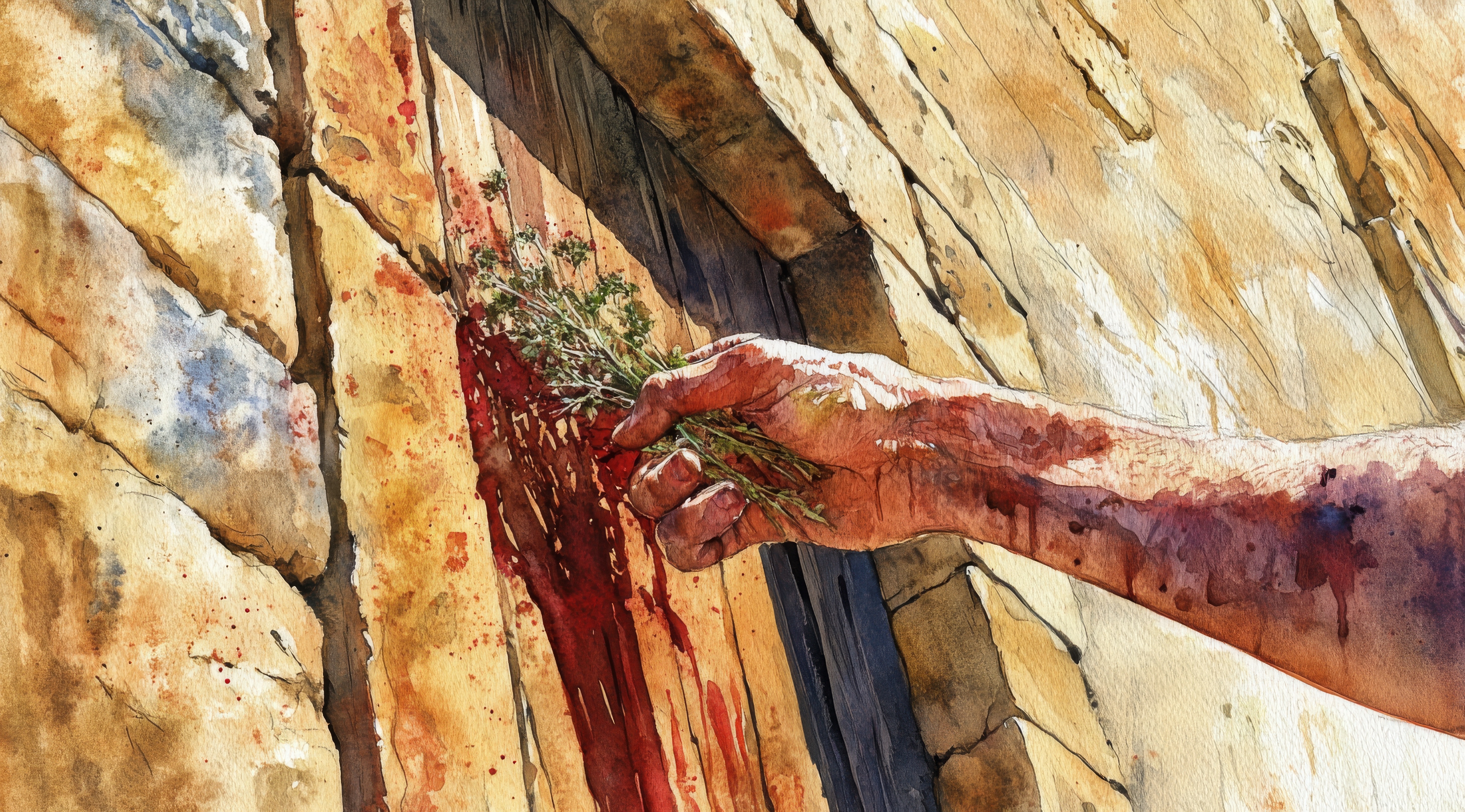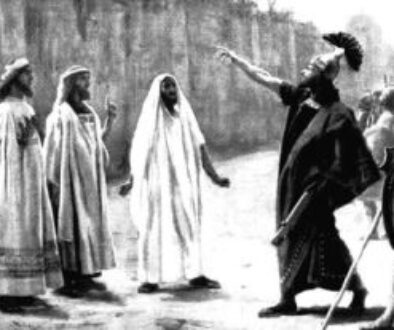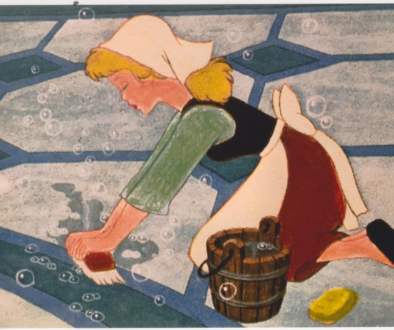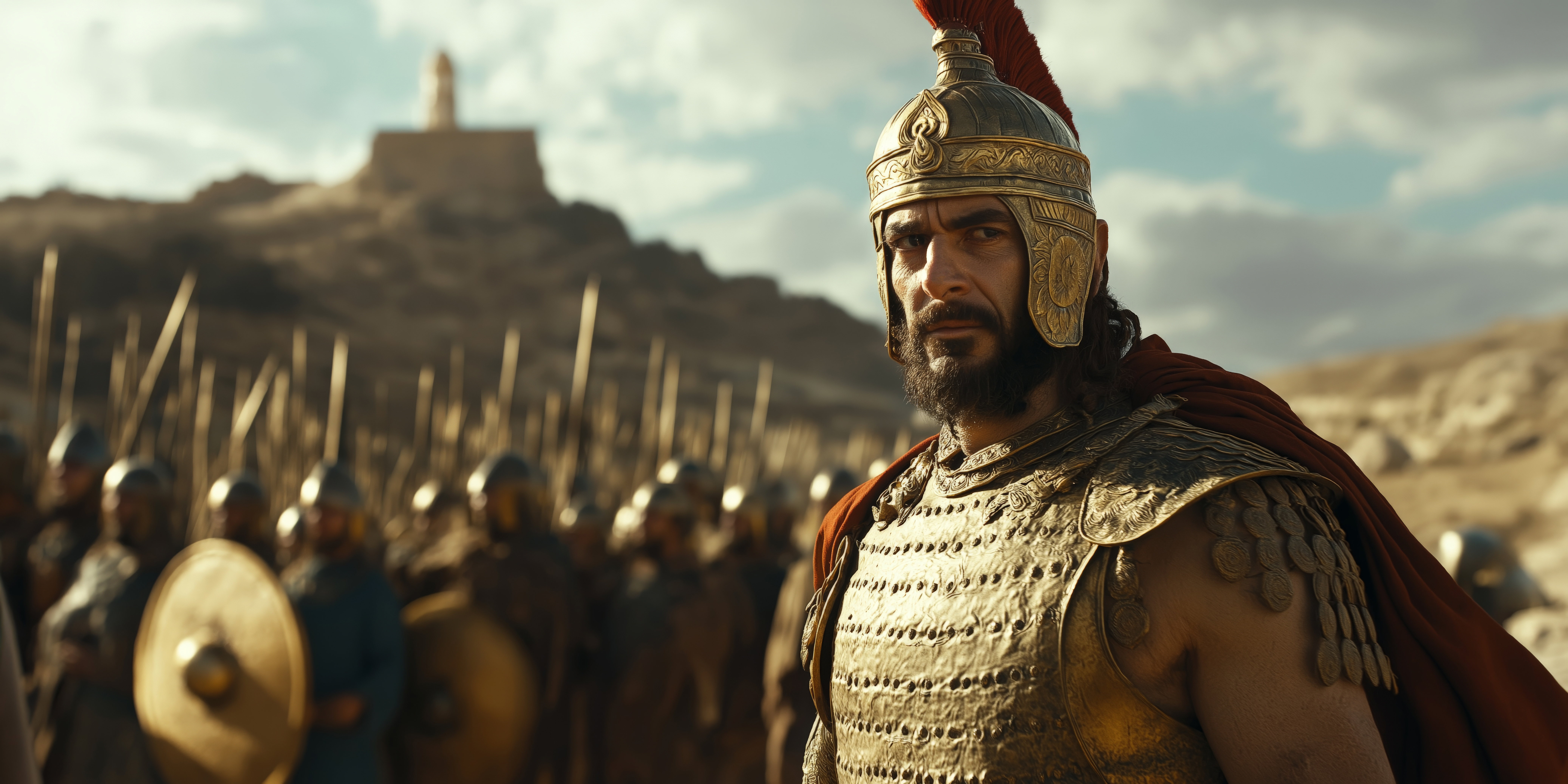2 Kings 18 Hezekiah Pt 2
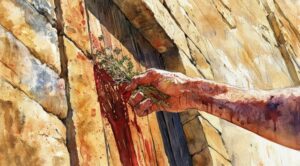
Hezekiah celebrates the Passover with Judah and invites ALL of Israel to share in it. MANY in Israel laugh at him, but some come to the Lord. Hezekiah cleanses Judah too.
Hezekiah and the people are on fire for the Lord. After their cleansing of the Temple, they want more. They realize what time of year it is and decide to reinstitute the Passover celebration. But Passover was not just for the tribes of Judah and Benjamin. It was for ALL of Israel, so they invite ALL of Israel home to celebrate it with them. Let’s rejoin our journey and see the first Passover on MANY years. Lead on Holy Spirit, we will follow.
♥ ♦ ♥
Hezekiah is still riding high as he returns to his palace that evening. Spending the day in the presence of the Lord is unlike ANYTHING he has ever experienced. And he wants MORE of it. He has always had a heart for God, but sharing this day with the people, ALL worshiping the Lord is beyond words.
As Hezekiah settles into his bed, something stirs in his spirit. It is a memory of what this day is. Today is the 17th of Nisan. Passover is supposed to be celebrated on the 15th of Nisan. “We missed it” cries Hezekiah, his heart breaking within him. “I was too late getting the cleaning started.”
The glow of the day fades as Hezekiah realizes this. Then his spirit is stirred again by the Spirit of the Lord. He remembers that God gave a provision to the people for celebrating Passover the following month, if they were unclean at the time of Passover. “The house of the Lord and the people were certainly unclean at the time of Passover. I believe we would qualify for that exception. But I need to speak with the people about this” he decides. When his mind won’t quiet he speaks audibly to his mind; “IN THE MORNING. Now go to sleep!” With a small chuckle at speaking so strongly to himself, Hezekiah settles down for the night.
Before the first light of morning, Hezekiah is up and moving. He has a LOT to do today. He will have the Passover question answered this day. He eats quickly and then hurries to his throne room. The guard is the only one here at this hour. Most of the people in Judah are still sleeping as the sun isn’t even up yet. The guard straightens to his full height as the king approaches.
“Shalom Jonathan” Hezekiah greets.
“Shalom, my king. You are up and about early. Is there anything I can do for you?”
“Actually, there is. I need a scribe and a runner right away. I know it is early but I have a matter that must be attended to this very day. Please send for both.”
“It will be done as you command.”
Hezekiah goes on into the throne room and starts pacing. While he paces, he plans out what to say to the people. The guard is also off rousing the people the king has commanded to attend him.
By the time the scribe and the runner arrive, Hezekiah has planned out what he wants to say in his edict. Both men enter and bow to the king.
“I’m sorry to be starting your morning so early, but the Lord impressed something on my heart last night that needs to be addressed immediately. I have a message that needs delivered to all the elders of the city as soon as the day breaks.”
The two men ready themselves for work. The scribe is at his table, parchment spread, ink open, and quill in hand. The runner stands ready.
“To the elders of Judah; ‘King Hezekiah seeks counsel regarding the celebration of Passover. The Lord impressed this upon me in the night. Meet in the courtyard of the Temple at the end of the first watch of the day. This matter must be settled before the second watch passes.’”
Both men’s interest is piqued. Passover hasn’t been celebrated in either of their lifetimes. What advice could the king be seeking? Neither voice their questions. There is work to do. But they both plan to be near enough to the Temple courtyard to hear the king address the elders.
“Another message of this same nature is to go to the Levites and the priests. ‘King Hezekiah seeks counsel on celebrating the Passover. Please attend a meeting the king has called in the courtyard of the Temple at the end of the first watch of the day.”
Both messages are dutifully written, blotted, then made ready for delivery. Hezekiah realizes that he only called for one runner. This message will take at least two. He turns to the scribe. “Would you be willing to act as runner for the priests and Levites in the Temple?”
“I would be honored to do so my king.”
“Then be on your way, both of you. This matter is urgent. And accompany me at the specified time, as I’m certain there will be need of your services again.”
Both men bow, and quickly make their way out of the throne room and onto their designated assignments.
The runners do not wait for sun to fully rise. They start pounding on doors as soon as their feet hit the pavement. The scribe had the easier job, as most of the priests and Levites are in the priest quarters in the Temple. And any who aren’t there, their brothers can get word to right away.
When the scribe arrives, the priest is getting ready to offer the morning offering. This is the first proper morning offering in too many years. King Ahaz had substituted his altar for the bronze altar and made a mockery of the sacrifice. Since the Temple’s rededication yesterday, today marks a new beginning. The scribe is wondering if he should wait until the offering is completed, or address the priest now.
His question is rendered moot when a second priest notices him standing near the eastern gate and comes over to him. “How can I help you, my brother. You look lost.”
“I am not lost, but I have a duty to perform and I don’t want to be intrusive. I have a message from the king for the Levites and priests. Should I wait until the sacrifice is complete before delivering it, or do it now?”
“There are still a few minutes before the sacrifice. If it is not a lengthy message, then deliver it now.”
“It is not lengthy. Could you gather those who should hear it first hand? After that, the message may be passed on by others.”
The priest brings the scribe inside the courtyard and motions for his fellow priests and the Levites present to join him. “This young man has a message from the king for us. Gather around so we can attend to his words.”
The scribe has never delivered the messages himself. At first, he is a little intimidated by all the eyes fixed on him, but the priest who met him at the gate puts a hand on his shoulder as encouragement. “Go ahead son. We are listening.”
The scribe unrolls the scroll and reads the king’s words clear and loud for all to hear. When he finishes, he re-rolls the scroll and looks at the people around him. He can see questions on their faces. He still has many of his own, and no answers for theirs.
The high priest nods. “Thank you. We will be ready at the appointed hour. I must attend to the sacrifice now. You are free to stay and worship the Lord with us, if you so desire.”
The scribe nods. He would very much like to be present for the morning offering. He steps back out of the way and watches as the priests perform the age-old ritual that the Lord has given them. And his heart turns to his God. The one that Ahaz had tried to stomp out of their hearts. When the sacrifice is complete, the scribe returns to the palace. And the Levites and priests begin passing the king’s message to their brothers.
The runner has been delivering his message door to door for the last hour. As the sun is rising, he is nearing completion of his task. Some of the elders are merchants and they already left their homes to set up for market day. The runner’s final stop is the market place. He will give his message there, and whoever is there, beyond the elders, will probably have as many questions as he has. He expects that there might be more in attendance at the appointed hour than the king actually invited. He has a feeling that the king won’t mind.
The market place is just beginning to do business when the runner arrives. There are several shoppers moving about, trying to get the best bargains of the day. He steps up onto a bench and calls out to the people. “O hear the words of the king!” When the people stop and give him their attention, he completes the delivery of his message from the king. Then he steps down. People in the market have questions and they are about to ask them of the runner when he puts his hand up. “I have no answers for the questions that I know are floating in your hearts. I have questions myself. The king has invited me to attend, where I’m certain he will address all questions. Only an hour remains until the appointed time. Make ready to attend.”
It takes all Hezekiah’s will to wait until the appointed hour. If it were not for decorum’s sake, he would be running through the streets, asking everyone the question that is burning in his soul. He sets out for the appointed place fifteen minutes before the appointed time. He can wait no longer. When he walks through the king’s gate, he sees that he is not the only one anxious for this meeting to begin. He smiles at the number of people who have responded to his message. He knows that there are more than just the Levites, priests, and elders present. This tells him that the common men are interested in hearing his concerns as well.
The people notice the king and begin to quiet as he approaches. He smiles at them and dips his head. As he nears them he says; “It is not quite time yet. We will wait until the appointed hour before beginning. I would not want anyone to miss an opportunity to hear what the Lord has impressed on my heart.”
Quiet conversations resume as the final minutes tick away. When the time piece reaches the end of the first watch, the king steps up onto the stairs in front of the Holy place. “Please come close enough that all can hear. This is to be a discussion.”
Hezekiah waits as the people move forward and surround him. He looks out at them and nods again. “Last night as I lay in bed, I was reminded of the Lord’s Passover celebration and His command to observe it on the 15th of Nisan each year.”
The people gasp. Their minds and hearts start thinking of this missed opportunity. Before discouragement can set in, Hezekiah continues. “I know that we have missed that date, but Moses gave the people permission to celebrate the Passover the following month, IF THEY WERE CERIMONIALLY UNCLEAN at the time of Passover.”
Heads begin to nod throughout the crowd, especially in the Levites and priests section. “I propose to do just that. To celebrate the Lord’s Passover on the 15th Iyar. I want to celebrate it with all of you. With all the people.”
Hezekiah lets this sink in for a few minutes before calling for input. “What say you all?”
One brave man steps up. “My king, I have an issue I would like to address concerning this.”
“Speak.”
“When the Lord instituted the Passover, He made it for ALL of Israel, not just the tribe of Judah. Are we to celebrate it alone? To deny our brothers this time with the Lord?”
Hezekiah’s eyes go wide. He hadn’t considered this. “This is true. What say you all?”
“What if we invited them to come?”
“That is a perfect idea!”
“That is exactly what we will do then” proclaimed Hezekiah. He looks to the priests first. “Am I correct concerning the postponement of Passover?”
“You are, my king. I am certain that the Lord is in this.”
“We will send word throughout all of Israel and Judah to the people. To invite them here to the Temple of the Lord our God. The God of ALL Israel. To celebrate the Lord’s Passover and remember His goodness to His people. We will observe it on the 15th of Iyar for seven days here in Jerusalem, as He commanded.”
Word goes out that very same day. Runners were dispatched to every tribe in Israel. From Dan to Beersheba, throughout Ephraim and Manasseh. Even to the tribes across the Jordan. NO ONE was left out. Every city, town, and village heard the king’s invitation.
“O people of Israel, return to the Lord, the God of Abraham, Isaac, and Israel, that he may turn again to the remnant of you who have escaped from the hand of the kings of Assyria. Do not be like your fathers and your brothers, who were faithless to the Lord God of their fathers, so that he made them a desolation, as you see. Do not now be stiff-necked as your fathers were, but yield yourselves to the Lord and come to his sanctuary, which he has consecrated forever, and serve the Lord your God, that his fierce anger may turn away from you. For if you return to the Lord, your brothers and your children will find compassion with their captors and return to this land. For the Lord your God is gracious and merciful and will not turn away his face from you, if you return to him” (2 Chronicles 30:6-9).
The invitation received varied responses. Some were excited and vowed to come, some were skeptical and expecting some kind of trap, and worst of all, some laughed outright at the thought of honoring the Lord’s Passover. Those in Israel have not worshiped the Lord since the day Jeroboam I set up the golden calves. The words; “Here O Israel are your gods that brought you up out of the land of Egypt” still ring in their hearts.
There is nothing that can be done about those who refuse to come. Instead, preparation is made for ANY who would attend. Fields are cleared for the sojourner to camp in, the city streets are cleared away of all garbage, and the herds are picked through, finding the animals worthy of offering to the Lord.
Two very crucial preparations were made as well. The people went throughout all the city of Jerusalem and removed ALL the altars that were there. These they took to the brook Kidron and threw with the other detestable articles removed from the Temple. The last preparation was done by the priests. They completed the required rituals for consecrating themselves to the Lord. This included them bringing burnt offerings to the Lord for themselves before the day of Passover. Without this, they would not be able to participate in the work of the Lord.
When the day arrives, the people of Judah come flooding into Jerusalem. They began arriving a week before the appointed day so they would not miss anything. “Some men of Asher, of Manasseh, and of Zebulun humbled themselves and came to Jerusalem” (2 Chronicles 30:11) but the rest of Israel stayed home. They chose not to honor the Lord’s Passover.
On the day of the 15th of Iyar, the people begin flowing to the Temple with their Passover offerings. The priests and Levites are all in place. Hezekiah looks out over the people and sees those who are physically dirty. This leads him to great concern regarding the people consecrating themselves to the Lord for this day. His heart goes out to those who have come, but have not taken the required steps. Instead of denying them this first step in returning to the Lord, he prays over the entire assembly.
“May the good Lord pardon everyone who sets his heart to seek God, the Lord, the God of his fathers, even though not according to the sanctuary’s rules of cleanness” (2 Chronicles 30:18-19).
The Lord honored Hezekiah’s prayer, and the priest and Levites forbade none to come. The Passover lambs are taken to the entrance of the Temple to be slaughtered. The Levites slaughter the animals for those who had not consecrated themselves to the Lord and pass the blood onto the priests to throw against the altar. This way all the animal are consecrated to the Lord for this Passover celebration.
The people join together in big and small groups, sharing the Passover supper. There is great joy in Jerusalem and all the fields surrounding it where the people gather to eat. Those who are ceremonially clean eat with those who have just come to the Lord. None are excluded. All are singing praises together to the Lord and worshiping Him for His mercy.
Fathers teach their children of the importance of this day. Strangers learn alongside them. It has been so long since anyone celebrated the Passover that it takes several people in each group to complete the story, for one remembers part and another other parts. Together though, they share the whole story of the miracle of the Lord.
“Mind you, I wasn’t there when it happened…” a father tells his son. “…but I have heard the stories all my life and I KNOW them to be true! How the angel of the Lord passed through all of Egypt. Any who did not have the blood of the lamb, applied with hyssop, on their doorposts, their firstborn child dies that very night.”
“That would have been ME!”
“It would have been. But Moses told the people of Israel what was coming and how God made a protection for them. They were to kill a special lamb and roast it. They were to go into their houses and eat the lamb…”
“Don’t forget that they were to be dressed and ready to go on a journey as they ate the lamb. They were to have their sandals on their feet and their staff in their hand” offers a nearby listener.
“That’s right. Because as soon as the people of Egypt discovered the deaths, they pushed the people of Israel out.”
“That was the last plague God sent on Egypt. He sent nine more before that day and Pharaoh refused to let God’s people go and worship Him” offers another.
“So, we hold this feast in remembrance of that night. The night the angel of the Lord ‘passed over’ the children of Israel.”
“But why do we eat the flat bread” asks the son.
“Ah, another question. And a good one at that. We eat the unleavened bread because when the people left Egypt they didn’t have time to put the leaven in their bread and let it rise. It would be seven days before they had made new leaven to use in their bread. We do this to remember them as they began their journey.”
“I like it this way. Maybe ima can make it for us at home sometimes.”
“We will have to ask her” the father says with a wink to his wife.
“I’m sure I can manage that from time to time” the mother says. “We will be eating it this way for seven days. You might change your mind after you have had your fill of it.”
King Hezekiah walks the Temple all day, encouraging the Levites and priests as they perform their duties. They are giving so much of themselves to the people that he wants to give something back to them.
When the last offering of the day has been made, the priests and Levites come together. They share in their meal. Hezekiah joins in his meal as well. This is the order of events for the next seven days. The people keep bringing offerings to the Lord out of an abundance of love in their hearts.
For the Levites and priests, the days are long and the work demanding. For the people, the streets are crowded and the lines are long. But there is not a single cross word spoken throughout the entire seven days. In fact, the people are so overjoyed to be spending this time with the Lord and their brothers that they ask for another week.
Hezekiah is MORE than willing to grant this extension. To this end, “Hezekiah king of Judah gave the assembly 1,000 bulls and 7,000 sheep for offerings, and the princes gave the assembly 1,000 bulls and 10,000 sheep” (2 Chronicles 30:24). The people celebrated the Passover for another eight days before being ready to go home.
When the final day dawned, the people said goodbye to the friends they had made and the priests and Levites offered a prayer over the people. All stood still as the high priest made intercession for the people.
“Lord God of Abraham, of Isaac, and of Israel, we thank You for this time we had together to honor You. We thank You for allowing ALL into Your presence during this time. Thank You for bringing family back together; those that were separated by anger and mistrust. For ALL of Israel are Your children. For those who could not come and share this time with us, for reasons beyond their control, we pray that You met them where they were through Your Spirit. For those who refused to come because they no longer honor You, we pray that You would do a work in their lives that brings them back to You. Be with the captives who are in captivity for turning away. Watch over all those who came to You in this season to honor You. Return them to their homes in safety and let them never forget this time together. Go in peace.”
God heard the priest’s prayer and so did everyone there that day. None would forget this day. Not since the time of Solomon had there been anything like it.
Hezekiah watches the people leave. They are joyful and kind to one another. And to his great surprise, they are respectful enough to pick up around their campsites. Jerusalem is not left with a large clean up after hosting the people for more than two weeks. His heart is thrilled by ALL that has happened. “This is just the beginning” he says to himself.
Hezekiah does not stop here in restoring Judah to the Lord. He goes throughout the land, seeking out and destroying ALL the high places, tearing down ALL the altars, chopping down and burning ALL the Asheim poles, and ridding the kingdom of EVERY idol.
Hezekiah knew that the people had be bowing down to the serpent that Moses had lifted up in the wilderness. “This is NOT right! It has become an idol as well.” Hezekiah took it from its place and broke it into pieces so the people would worship it no more. This too found a place among the detestable things at the brook Kidron. Great fires were made there to burn away ALL the things that had brought sin into Judah.
(to be continued)
Hezekiah was an amazing king! His heart was for the Lord and for the people. He didn’t just want God to bless him, but to bless the whole nation; both kingdoms. He tried with all his heart to get the northern kingdom’s people to come and celebrate the Passover. I would not be surprised in the least to learn that he sent a personal invitation to King Hoshea. But he didn’t come. I wonder what history would have changed if he had come.
Something else that I LOVE about this story is that, even those who hadn’t gone through the consecration process, were welcome to participate in the Passover. They didn’t have to be clean to come before the Lord.
We don’t have to be clean before we come before the Lord. HE cleans us. Honestly, we can’t do it on our own. If we could, we wouldn’t need a Savior. He takes us as we are and then changes us with gentle, and not so gentle, lessons along the way. He does not push the transformation process faster than we can take. And He doesn’t abandon us on the ‘workroom floor’ when we don’t go fast enough or mess up again.
I have pictured myself many times as a lump of clay on His ‘workbench’. He molds me, pinches parts together, expands other parts, rounds, smooths, and textures as He sees in his ultimate design. Then I ‘let out a burp’ or and imperfection in my clay. He does not smash me back down and start all over. He uses that imperfection and cerates a design from it. It becomes a ‘center piece’ of growth. He does this over and over again. As many times as needed. This includes when I break after being fired in the kiln. The places where cracks appear are rendered with such artistry that they draw the eye rather than turning it away.
And here is the MOST AMAZING PART. When I’m finished, I will look EXACTLY like the plan He had for me from the beginning! THAT is my God!
Father God, thank You for never giving up on me. For bringing to me people who will remind me of Your work in my life. For the Hezekiah’s who can’t wait to bring back the remembrances of You. Who point others to You while drawing closer themselves. Let me be someone like that. Use me Father God to help find beauty, even in the ‘dirtiest faces’. And help me to welcome each of them with love.

